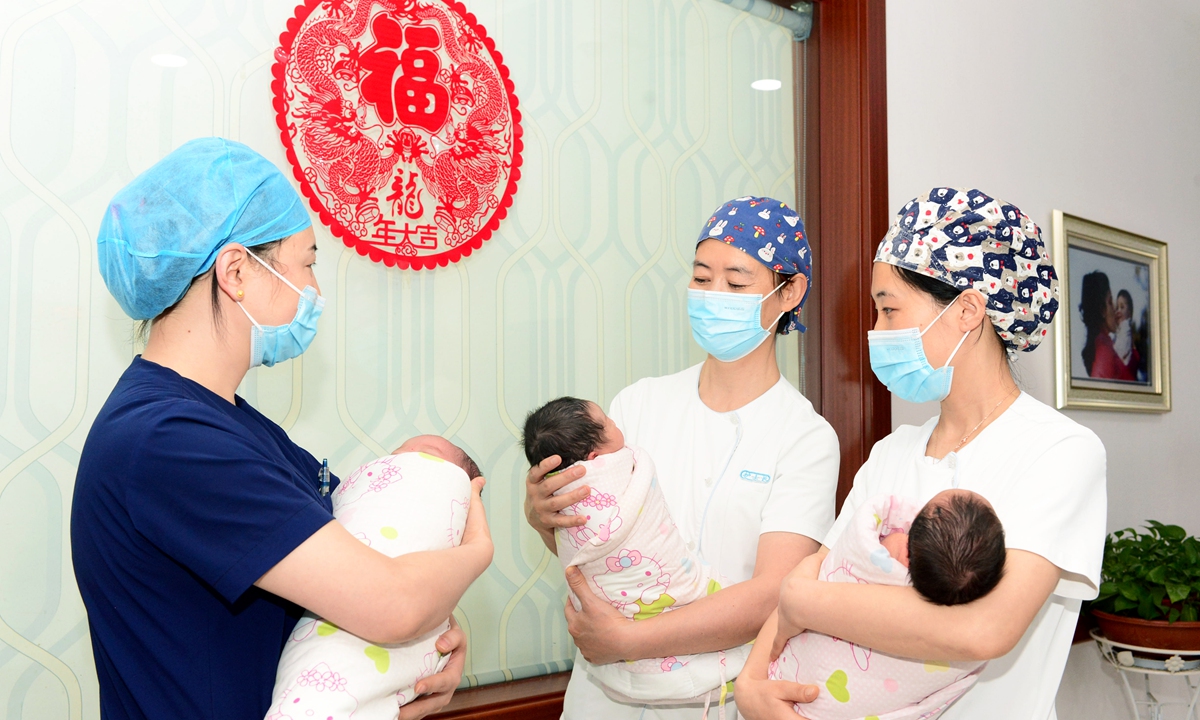
Medical staff at a hospital in Lanzhou, Northwest China's Gansu Province, take care of newborn babies on February 28, 2024. The hospital delivered 1,035 babies in the first 15 days of the Year of the Dragon. Hospitals in various parts of Gansu have seen a significant increase in newborns during the period. Photo: VCG
Currently, 31 provinces, regions and the Xinjiang Production and Construction Corps in China have included assisted reproductive technology (ART) service in their health insurance coverage, benefiting over 1 million people by 2024, the National Healthcare Security Administration said at a press conference held on Friday, according to CCTV News.
From January to November 2024, 252 million people were covered by maternity insurance, with expenditures totaling 115.811 billion yuan ($15.796 billion).
Such efforts are aimed at refining policies and measures, strengthening the function of maternity insurance protection, and promoting coordination with relevant economic and social policies to support the development of a maternity-friendly society, said the report.
According to Jin Niu, a lecturer from the School of Public Finance and Administration, Tianjin University of Finance and Economics, including ART services into medical insurance can partially reduce the cost of childbirth, enabling prospective parents to have an improved childbirth experience. It is one of the important factors for building a fertility-friendly society, yicai.com reported in July 2024.
In addition, the National Healthcare Security Administration has encouraged certain regions to include flexible and new forms of employment in employee health insurance within the coverage of maternity insurance, to better protect the reproductive rights of these employees, said the report.
Provinces such as East China's Jiangxi and Zhejiang provinces, North China's Tianjin Municipality, and Southwest China's Guizhou Province have already implemented measures to include these individuals in maternity insurance.
Besides these, China is promoting the direct settlement of maternity medical costs and encouraging eligible regions to directly disburse maternity benefits to insured female employees according to relevant procedures, with the disbursement of maternity benefits completed within 10 working days.
Through this effort, more than one-third of regions nationwide have directly disbursed maternity benefits to individuals in accordance with the procedures.
The next step for the National Healthcare Security Administration is to continue refining the maternity insurance system and policies, actively supporting childbirth through the comprehensive implement of healthcare insurance policies, alleviating the financial burden of maternity medical costs, and simultaneously enhancing inter-departmental collaboration to jointly promote high-quality population development, according to CCTV News.
Global Times




